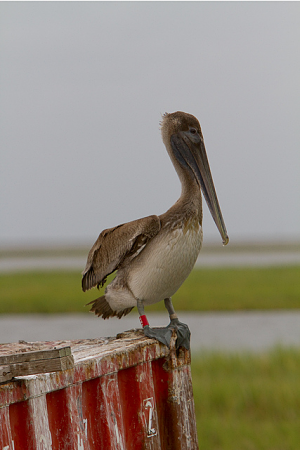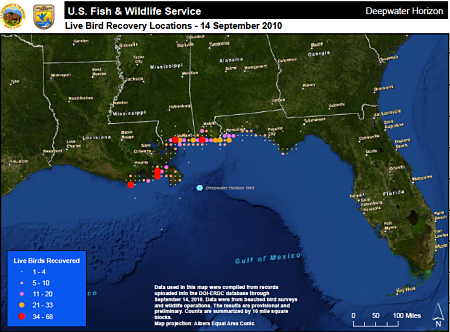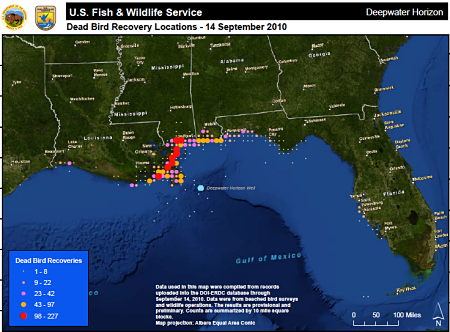
La página que intenta visitar sólo está disponible en inglés. ¡Disculpa!
The page you are about to visit is currently only available in English. Sorry!

 |
In August, nine prominent scientists sent an open letter to Attorney General Eric Holder and BP CEO Robert Dudley, asking for “full and prompt” release of information assessing the damage with a special emphasis on "key data relating to wildlife mortality and injury."
The scientists, including Blue Ocean Institute’s Carl Safina, Union of Concerned Scientists’ Grancesca Frifo, and NWF’s Doug Inkley, wrote:

Laughing gulls have been hit hardest, with 1,591 found dead and 294 rescued alive, followed by the recently de-listed brown pelican: 376 dead, 192 alive.

“These new detailed reports will give us a better initial picture of the effects to migratory bird populations from the Deepwater Horizon spill, help guide our efforts to restore these populations, and help ensure that those responsible will be held accountable for the full impacts of the spill,” said Tom Strickland, assistant secretary of the Interior for FWS, in a statement.
With BP’s well permanently sealed, the Gulf oil spill is beginning to fade from the front pages. But though new crude isn’t gushing into the Gulf, residual oil is a problem and bird carcasses are still being found. The full effects of the spill on wildlife and water quality won’t be known for years. Getting a handle on the spill’s impacts—and making that information publicly available—is essential for long-term conservation efforts in the Gulf.